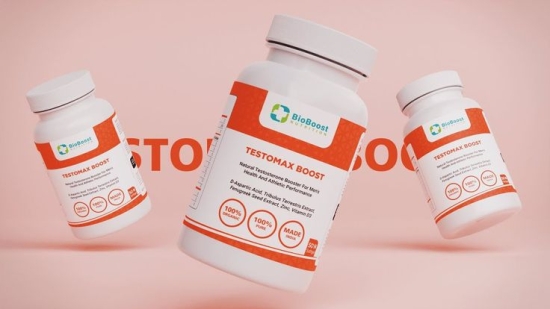In the pursuit of peak athletic performance, every edge counts. Testosterone boosters, often discussed and debated in sports circles, are among the many methods athletes use to gain a competitive advantage. This comprehensive exploration into testosterone boosters aims to demystify their role, benefits, and risks in the context of athletic excellence.
Understanding Testosterone in Athletic Performance
The Biological Role of Testosterone
Testosterone is a steroid hormone predominantly produced in the testes and ovaries. It's instrumental in developing male secondary sexual characteristics and plays a vital role in overall health and well-being. In athletics, testosterone's anabolic effects—such as promoting muscle mass and strength—are particularly valued.
It also influences fat distribution, red blood cell production, and maintains bone density, all critical factors in athletic performance. A balanced level of testosterone is crucial for optimal health and performance, making its management a key focus for many athletes.
Testosterone Levels and Athletic Variability
The natural variance in testosterone levels among athletes raises important questions about fairness and performance advantages in competitive sports. For instance, athletes with naturally higher testosterone levels may experience enhanced muscle growth and improved recovery times, giving them an edge in strength and endurance-based sports.
This variance has also sparked debates in gender categories in sports, especially concerning athletes with conditions like hyperandrogenism. Understanding these natural variations is essential for developing fair and effective sports policies and for athletes seeking to optimize their performance within these frameworks.
Testosterone Boosters in Sports
Types of Testosterone Boosters
The market for testosterone boosters is diverse, ranging from natural supplements to medically prescribed hormone replacement therapies. Among natural supplements, the best Testofen supplement is often sought after for its reputed efficacy in boosting testosterone levels naturally. Testofen, derived from fenugreek, is a popular ingredient known for its potential to increase testosterone levels.
Athletes often turn to these boosters to overcome deficiencies or to gain a competitive edge. Other natural supplements, which typically include plant extracts and essential nutrients, are often preferred for their perceived safety profile. However, their efficacy varies, and the quality of these supplements can be inconsistent. In contrast, medically prescribed testosterone, such as injections or gels, are used in more controlled environments but carry a higher risk of side effects and are strictly regulated in professional sports.
The Legality and Ethics of Testosterone Boosting
The ethical considerations surrounding testosterone boosters in sports are complex. They touch upon issues of fairness, health risks, and the integrity of sports.
The World Anti-Doping Agency (WADA) and other regulatory bodies have set strict guidelines on the use of performance-enhancing substances, including synthetic testosterone. Athletes using these substances risk sanctions, including bans from competition. This legal and ethical landscape requires athletes to be well-informed and cautious, ensuring that their pursuit of performance enhancement aligns with the values of fair play and health preservation.
Evaluating the Efficacy of Testosterone Boosters
Scientific Evidence and Athlete Testimonials
While anecdotal evidence from athletes suggests that testosterone boosters can lead to noticeable improvements in strength and stamina, the scientific community remains divided. Research studies often show conflicting results, with some indicating potential benefits and others finding minimal or no improvement in performance.
These discrepancies can be attributed to variations in study designs, differences in the quality and type of testosterone boosters used, and the individual characteristics of study participants. As such, athletes considering testosterone boosters must critically evaluate the available evidence and consider their unique physiological makeup.
Risks and Side Effects
Beyond the potential performance benefits, the risks associated with testosterone boosters, particularly synthetic ones, are significant.
Hormonal imbalances caused by exogenous testosterone can lead to long-term health issues, including infertility and increased risk of cardiovascular diseases. Athletes may also experience acute side effects like skin conditions, mood disturbances, and changes in libido. The psychological impacts, such as increased aggression, can affect an athlete's mental well-being and interpersonal relationships. These risks underscore the importance of careful consideration and medical supervision when using testosterone boosters.
Integrating Testosterone Boosters into Training Regimes
Best Practices for Athletes
For athletes considering testosterone boosters, a holistic approach is vital. This includes thorough medical evaluations to understand individual needs and potential risks.
Athletes should also stay informed about the changing landscape of sports regulations regarding supplement use. Additionally, maintaining a balanced diet and a well-structured training program is crucial. Supplements should never replace the fundamentals of good nutrition, adequate rest, and appropriate training. Athletes should also be aware of the psychological impacts of relying on supplements, and striving to maintain a healthy balance between physical and mental health.
Balancing Boosters with Holistic Training Approaches
The integration of testosterone boosters into an athlete's regimen should be approached with a view of complementing, not replacing, traditional training and recovery methods.
Proper nutrition, hydration, sleep, and mental health are all foundational elements that support an athlete's performance. Testosterone boosters might offer additional benefits, but they cannot compensate for deficiencies in these fundamental areas. Additionally, athletes must remain vigilant about the sources of their supplements, opting for reputable brands and avoiding substances with unknown or potentially harmful ingredients.
Conclusion
The use of testosterone boosters in sports is a multifaceted issue, encompassing physiological, ethical, and regulatory dimensions. While they can potentially enhance athletic performance, the decision to use them must be informed, cautious, and within the bounds of sportsmanship and health.
Athletes, coaches, and sports bodies must continue to navigate this complex landscape, prioritizing the health and well-being of athletes while upholding the integrity and fairness of competitive sports. In the quest for excellence, the role of testosterone boosters is significant but should be balanced with a comprehensive understanding of their impacts and limitations.






Comments powered by CComment